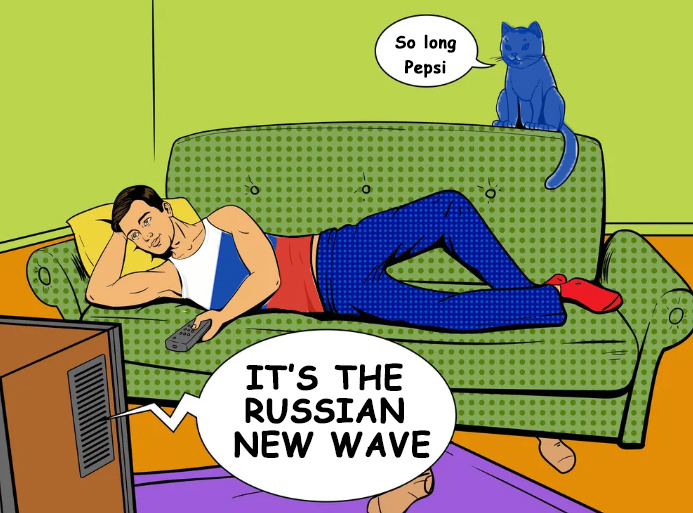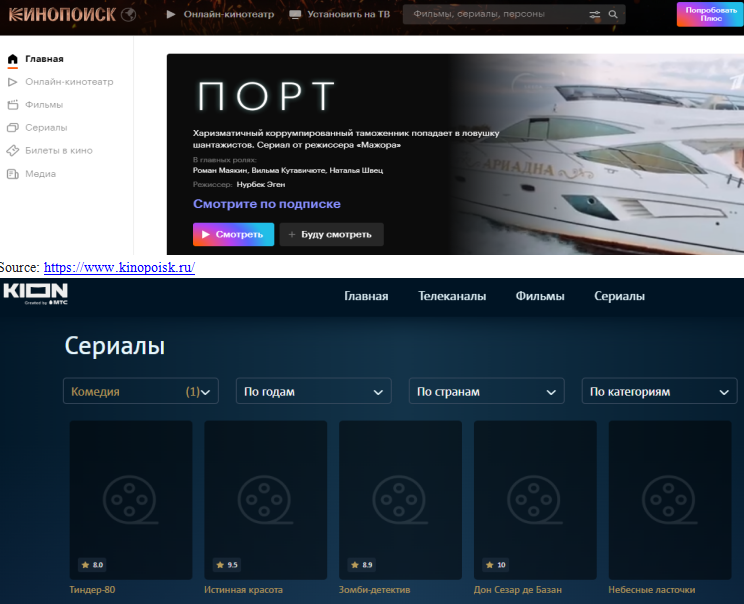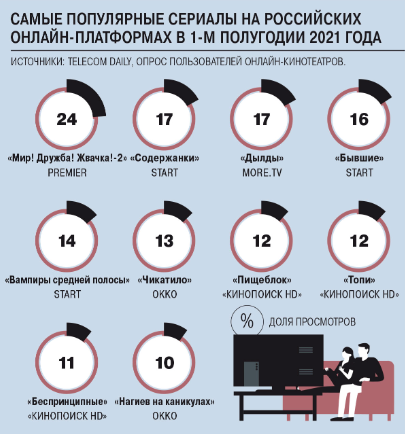This is Naked Capitalism fundraising week. 990 donors have already invested in our efforts to combat corruption and predatory conduct, particularly in the financial realm. Please join us and participate via our donation page, which shows how to give via check, credit card, debit card, or PayPal. Read about why we’re doing this fundraiser, what we’ve accomplished in the last year,, and our current goal, expanding our reach.
Yves here. Earlier in the week, we posted an article from John Helmer on Russia’s plans to develop, or perhaps more accurately ramp up, domestic aircraft production. Readers had a robust debate, with some arguing that Russia would never get there, and certainly could not compete with Airbus and Boeing. Others said they’d actually flown on Russian planes. They weren’t a plush ride but they did get from point A to point B.
So it’s an open question as to how far Russia might get and how long it will take to build a domestic commercial fleet. And they are unlikely to attract much in the way of foreign buyers. But remember, no one thought Japanese could ever build cars that would be globally competitive in the 1960s. But Russia may not be that ambitious over a long time frame, and in particular, they may not have the inclination to cater to fussy customer/passenger requirements.
By contrast, Helmer’s article on the Russian comedy industry argues that on a current basis, sanctions have helped not just domestic content producers but even broadcasters.
By John Helmer who has been the longest continuously serving foreign correspondent in Russia, and the only western journalist to have directed his own bureau independent of single national or commercial ties. Helmer has also been a professor of political science, and advisor to government heads in Greece, the United States, and Asia. Originally published at Dances with Bears

Never mind that King Solomon said proverbially three thousand years ago, “a merry heart doeth good like a medicine.”
With seven hundred wives and three hundred concubines, Solomon realized he was the inventor of the situation comedy. If not for the sitcom as his medicine, the bodily and psychological stress Old Solly had to endure in the bedroom would have killed him long before he made it to his death bed at eighty years of age, after ruling his kingdom for forty of them.
After the British sitcom died in the 1990s, the subsequent stress has not only killed very large numbers of ordinary people. It has culminated today in a system of rule according to which a comic king in Buckingham Palace must now manage the first prime minister in Westminster history to be her own joke.
Even the Norwegians, the unfunniest people in Europe, have acknowledged that the only way to attract the British as tourists, was to pay John Cleese of Monty Python and Fawlty Towers to make them laugh at Norway itself. This has been a bigger success for the locals than for the visitors, boosting the fjord boatman’s life expectancy several years ahead of the British tourist’s.
In fact, Norwegian scientists studying a sample of 54,000 of their countrymen have proved that spending the state budget on public health and social welfare will only work effectively if the population is laughing all the way to the grave. “The cognitive component of the sense of humour is positively associated with survival from mortality related to CVD [cardio-vascular disease] and infections in women and with infection-related mortality in men” – Norwegian doctors reported in 2016. Never mind the Viking English: the Norwegian point is the same as Solomon’s that “a sense of humour is a health-protecting cognitive coping resource” – especially if you’ve got cancer.
The Russians understand this better than the Norwegians or the British. Laughter is an antidote to the war propaganda coming from abroad, as Lexus and Vovan have been demonstrating. The Russian sitcom is also surviving in its classic form to match the best of the British sitcoms, all now dead – Fawlty Towers (d. 1975), Black Adder (d. 1989), You Rang M’Lord? (d. 1988), Jeeves and Wooster (d. 1990), Oh Dr Beeching! (d.1995), and Thin Blue Line (d. 1996).
The Russian situation comedies, alive and well on TV screens and internet streaming devices across the country, are also increasingly profitable business for their production and broadcast companies – not despite the war but because of it. This has transformed the Russian media industry’s calculation of profitability by removing US and European-made films and television series, as well as advertising revenues from Nestlé, PepsiCo, Mars, and Bayer. In their place powerful Russian video-on-demand (VOD) streaming platform companies like Yandex (KinoPoisk), MTS (Kion), Mail.ru (VK), and Ivi (Leonid Boguslavsky, ProfMedia, Baring Vostok) are now intensifying the competition for audience with traditional television channels and film studios for domestic audiences. The revenue base of the VOD platforms is less vulnerable to advertisers, more dependent on telecommunications subscriptions.
Russian script writers, cameramen, actors, designers, and directors are now in shorter supply than ever before, and earning more money. “It’s the Russian New Wave,” claims Olga Filipuk, head of media content for Yandex, the powerful leader of the new film production platforms; its controlling shareholder and chief executive were sanctioned last year.
The stock characters of the situation comedy are more or less the same across Europe and North America — in-laws, girlfriends, boyfriends, policemen, schoolmates, co-workers, petty criminals. The ideology is profoundly different, and thus the point of the comedy, the laugh lines. This contrast is now sharpening as American influence, which took over Russian media during the Yeltsin period, is erased. This revolution in mentality is replacing the Yeltsin generation; they are the ones now advertising their opposition to the Kremlin in New York, Paris, and Berlin. They are out of work; their replacements in Moscow are capitalising on their departure.
Turning sitcom plots into laughs is difficult; sustaining the audiences at constant quality over years is almost impossible. The best of the British ones were able to sustain the inventiveness for no more than two or three seasons. Those British sitcoms which have lasted for much longer – Hi-de-Hi, for example, an early creation of the authors of You Rang M’Lord? and Oh Dr Beeching!, lasted for eight seasons, 1980-1988, while Fools and Horses ran for seven seasons; Dad’s Army for nine; Steptoe and Son for eight. Doc Martin has been running for nine, with a final tenth still to come, but the series stopped being a comedy half-way through.
The leading Russian television channels which produce comedy series are CTC (in Cyrillic STS) owned by the National Media Group, and TNT owned by Gazprom Media. TNT holds 100% of the rights to comedy series made by Comedy Club Production and shares rights with TNT to shows by Good Story Media . By the end of 2021, TNT was reporting that it had increased the number of new shows or premieres, and was drawing modest increases in both its young and middle-aged audiences. Increasing comedy was the key to audience growth, TNT announced.
Audience rating websites agree that the most popular domestic comedy series for 2021 were: Vacation , Girls with Makarov, Vampires of the Middle Lane, Al-Kapotnya, Happy End , Two , and Policeman from Rublevka.


Top: Vampires of the Middle Lane; bottom – Girls with Makarov; Al-Kapotnya; and Policeman from Rublevka. Al-Kapotnya is a play on words, combining Al Capone and Kapotnya, a district of southeastern Moscow with a reputation for criminal gangsterism like Chicago’s Southside when Capone controlled it.
The rapid growth of video streaming has transformed the domestic media industry in just two years, triggering a rapid increase in demand for new film series while the number of writers, directors, actors, and technicians has remained the same. This has helped double the rates of their pay, according to Olga Filipuk who runs KinoPoisk (“Film Search”) for Yandex. “The online platforms have changed the TV series production market,” she says. “Three or four years ago, the series were ordered only by the big TV channels, and the producers depended on the moods or tastes of their managers.”
“If you had a historical series,” adds Sergei Kornykhin, an independent Moscow film producer, “you could take it to Channel One or VGTRK. A comedy series, if it’s complicated, that was TNT. If it was family oriented, that’s CTC. You were given a price, and you worked within that.” US media industry publications didn’t begin to notice the transformation of the Russian media industry until mid-2021, two years after the revolution had begun in Moscow. For example, between June and September of last year Yandex launched this PR campaign for its video-on-demand (VOD) streaming platform unit KinoPoisk: https://variety.com/ and https://www.screendaily.com/ and click.
THE NEW RUSSIAN VIDEO ON DEMAND PLATFORMS

Source: https://kion.ru/

Source: https://corp.ivi.ru/en/
THE MOST POPULAR SERIALS ON RUSSIAN ONLINE PLATFORMS, FIRST HALF 2021

The numbers indicate the percentage for each serial selected by measured VOD audience; title in bold; the platform brand in caps. Source: https://www.kommersant.ru/
One consequence of the growth of demand for films and the shortage of people to make them has been a sharp increase in student demand for film schools. Western media have been reporting the exit abroad of Moscow media personalities, television presenters, and reporters; they have failed to notice the boom in applications to the Moscow Film School (MHSK) and a dozen other television production and film training institutes; the latter far outnumber the former, and will shortly replace the Yeltsin media generation entirely. Kinopoisk and the National Media Group are subsidizing the new trainees and the schools.
The immediate pressure from the production companies for broadcast content and the overfilled order books at the studios mean that, as one TNT producer has commented, “everyone who is able to roll a camera is busy. There is simply nowhere to put a new billion dollars of investment. For the time being, the investments already made by the players are outstripping the income they receive, so now is the time to experiment with new niches and sub-genres, and new investments are possible.” New investment is being held back by the big corporations already engaged until the subscription lists for their platforms reach a stable level of 10 million, industry sources calculate.
At that point, investors will be more confident of investment payback. That’s when everyone will start laughing all the way to the bank.


Norwegians are the unfunniest? I thought it was the Andorrans.
When i see what passes for comedy these days, well KLM it ain’t. ;)
I can see the upside of the present situation in cultural terms for Russia but it is a pity one obvious corollary is that we in the West are unlikely to have much opportunity to sample this renaissance ourselves – not that we would have been in much danger of that for, well, almost 80 years I guess, if ever. Though at least prior to the current madness you could enjoy great Russian art, music, literature and film without feeling that it might be wise to do so in private.
For comedy in particular it is surely our loss. Russians seem to like their comedy black, and I have enjoyed the the cheerful cynicism of the jokes from the Soviet era which I’ve come across (some from a list compiled I believe by the CIA for Reagan, who was an aficionado)
A few faves:
“Dear Comrade Editor: I am mixed up. I read in one political textbook that when full Communism arrives we will have no money. But then in another textbook, I read that we will have money. What is right and what is wrong?”
Answer: “Dear Comrade Reader: Both books are correct. Under Communism some people will have money and some will not”
Why do the KGB go about in threes?’ ‘Well, one of them can read, and one can write. The third one is there to keep an eye on the two intellectuals!
Q: Is it true that the Soviet Union is most progressive country in the world?
A: Of course! Life was already better yesterday than it’s going to be tomorrow!
“My wife has been going to cooking school for three years.” “She must really cook well by now!” “No, so far they’ve only got as far as the bit about the Twentieth CPSU Congress.”
“Nurse, where are we going?” / “To the morgue.”/ “But I haven’t died yet!”/ “Well, we haven’t arrived yet.”
President Boris Yeltsin addresses the nation: “For three years, our nation was on the edge of a precipice. Now, finally, it takes a step forward!”
There is a book you may like titled Tiny Revolutions in Russia which is a large collection of Soviet humor, written by Bruce Adams. It may have an online copy now.
i said when this all started that russia built planes before, and they will again. anyone that thinks boeing and airbus are special, do not know or understand that human ingenuity could care less about skin color and facial features.
…or communist inclinations.
There was a recent TV series called “La Brea” where a giant sinkhole opened up in the middle of L.A. and sucked a big chunk of it down. Would it be so bad if this happened in real life but sucked down Hollywood and all the TV studios with their executives? This article is showing how without all those US imports, that the TV arts are thriving in Russia now because they have a wide lane open for them. In fact, I was reading recently how because Russia cannot get the latest Hollywood films in movie theaters, they they are being repurposed to staging plays and musical recitations. Here on NC we often read of movies from overseas snagging people interests, especially those from South Korea. Imagine the wealth of films that would show up because Hollywood is now no longer chocking the arts in other countries? I would even go further and say imagine all the Indie films that could be made in the US from people like Geo that people would now have a chance to see. Culturally it would be like a new popular Renaissance.
There’s a great documentary, Exporting Raymond (available for rent on Amazon and Apple TV) about Phil Rosenthal, the creator of Everyone Loves Raymond, and his attempts to translate a very traditional US sitcom to Russia. Lots of insight into Russian humor and sensibilities.
And here’s an interesting story about Married With Children getting the Russian treatment!
https://melmagazine.com/en-us/story/russian-married-with-children
Blackadder did not die in 1983, it had only just started!
I think it is a typo for died in 1993, I remember it finished around about the time I went to College. If you have not seen any of the four series, you only have to watch the final episode to understand its brilliance. Irascible, scornful Captain Blackadder leads peasant idiot Private Baldrick and aristocratic buffoon Captain Darling over the top in WWI.
https://www.youtube.com/watch?v=RcIV5tU_Zik (full episode, 30 minutes)
https://youtu.be/NgyB6lwE8E0 (final scenes if you are in a hurry)
My recollection is that the episode was fittingly broadcast around the time of Remembrance Sunday in 1989, minus a few days or so. Time flies. Particularity poignant given the war the west has now provoked and which it seemingly wants to carry on.
More totally lightheartedly, the attached from Only Fools and Houses in 1996 has apparently been voted as the greatest comedy scene on British TV if anyone is interested. Just takes a minute or so.
https://youtu.be/63rcdLeXiU8
I personally think this one below from 1989 is funnier though. Just takes a minute or so too.
https://youtu.be/LAh8HryVaeY
A great thing about many of those comedies from that time is that were funny but made very serious points too.
You’re right. I looked it up! Scary, that – it finished while I started my GCSE’S and that feels like another world but Blackadder feels like yesterday (apart from Series 1, which feels like a bad 70’s show). Then again, for that matter, the 70’s comedies like the Rise and Fall of Reggie Perrin feel like yesterday and some of them finished before I was born!
Without cheating and looking it up to check, Blackadder goes Forth was before Maggie was defenestrated, before Gulf War The First Part, before grunge, before mainstream rave, before Reservoir Dogs, before Fight Club and, of course, before meaningful amounts of the WWW. The Duke of Windsor was still alive and so were people who remembered Queen Victoria!
Was it before or after the Berlin Wall came down? I think before – I went on a German exchange and I think the border was still live, when we went up the Harz mountains.
OFAH is an acquired taste. It’s a bit too sweet at times – I would never choose to watch it – but it is so well done that catching it flicking through would likely draw me in. I only really watched it with my elderly babysitter because her son was a writer for David Lyndhurst, possibly for OFAH but certainly for his later solo stuff. It is a small world!
As working class sitcoms go, I preferred Porridge, which was a lot darker at times. I also preferred David Jason as a character actor, in Frost for example.
As the saying goes, it is the royal fool that can speak truth to power.
Stand-up used to be this in its rawest form. Basically about standing there and doing the verbal equivalent of holding up a mirror.
Helmer has an astonishing capacity for watching TV shows. Readers who would like to see Russian feature films, old and recent, can watch many of them for free at the Russian Film Hub.
Thanks so much for this link. I have never watched a movie on a computer but it looks like I have some new films in my future.
> Increasing comedy was the key to audience growth
I can just hear all the liberal Democrats: That’s not funny!